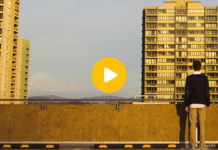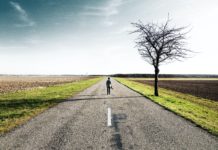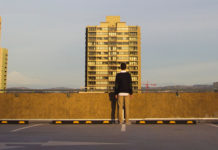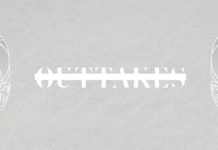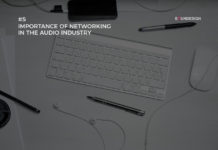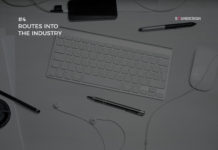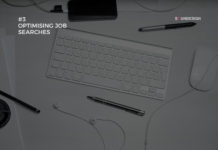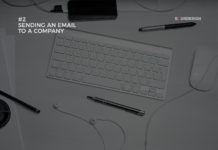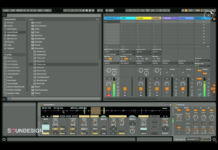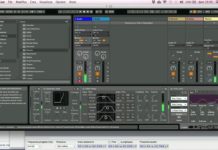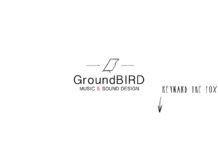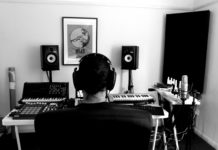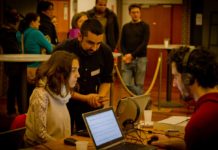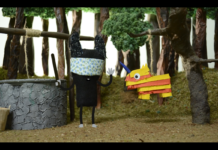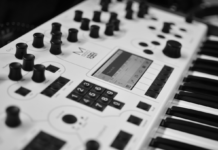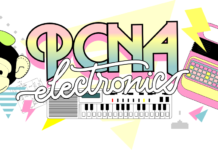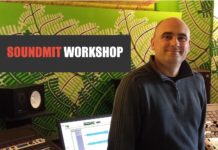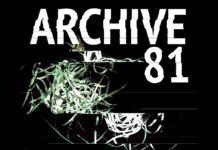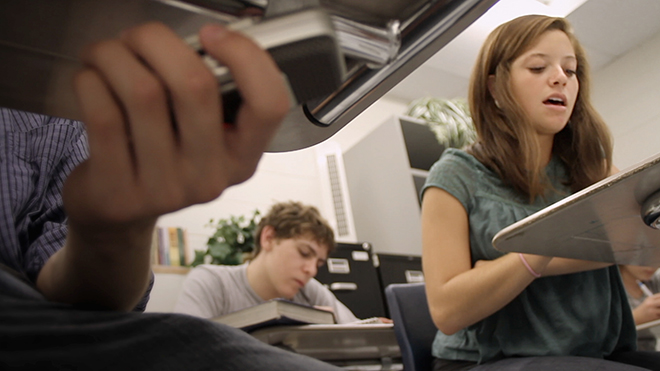Portable technological devices, or in other words the extension of our senses that everyday we carry around. What if they become so present that we cannot literally sense anything anymore without them? They fail, they can betray us: running out of batteries, getting smashed or we or dry or rotten or…
What happens then? And what if the sense we are talking about is hearing and the device is a portable digital recorder? Enough to be interested in the theme, as I myself travel with a portable recorder everywhere. So I watched Euphonia, the astonishing new feature film by Ornana, and then I wanted to talk more about it with the director and (of course) sound designer Danny Madden.
All our readers will immediately think what I thought: you cannot obtain that sound with a Zoom H2! So, my question is about the recording and sound design techniques used during production and post production: can you give us some details?
All the sound you hear from the dialogue to the foley to the score to the wacky glitchy stuff was all recorded with a Zoom H2 or H4. Some of it was manipulated and played back through cheap computer speakers only to be re-recorded with a Zoom. Many of the recordings were from Will’s hand as he was portraying the main character; he also took a Zoom out for a few months and played the role before shooting which led to some ideas for new sequences and a pre-established library of sounds to use for the film. We made a few subtle changes between the two soundscapes. One trick was to play non-diegetic sounds more on the mono side of things and open up the diegetic stuff, stretch it out in stereo.
But mostly we relied on how those sounds were introduced narratively and how Will’s character responds to them.
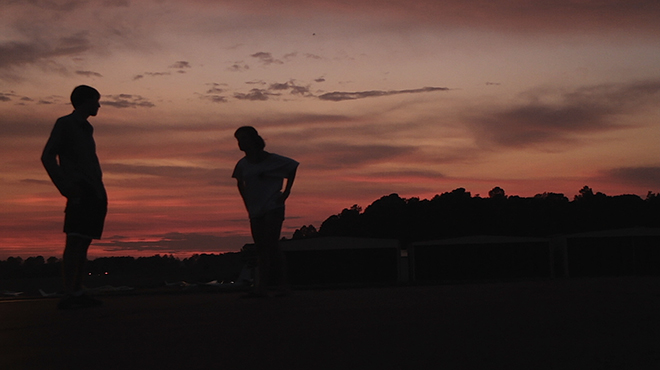
I was quite interested by the theme of memory: the protagonist assertion that he records to remember. How do you think sound influences our memories?
Often I’ll look at old photographs I took or ones that I’m in and remember a lot of the information–when it happened, who was there, what was on my mind at that particular time. But sound, I feel, digs deeper, it sort of sparks other senses for me. If I listen to a recording of the ocean there’s not only a visual that tags along, but maybe the smell of salt water or the heat of sun on your skin. I react a certain way when I hear my brothers’ young voices on old home videos or hear a song I used to listen to with an old girlfriend. Sound strikes more at an emotional memory in me.
Skywalker Sound invited to share the experience of Euphonia at the Ranch: can you tell us something about that?
We met a couple of those guys at one of Euphonia’s South by Southwest screenings in Austin, TX. They invited us to come screen at the Ranch, which was only about a thirty minute drive from where we were working on our next project. Perfect. So we screened one day during lunchtime and twenty or so sound folks showed up. It was a trip to screen it there, larger than it’s ever been on a sound system that’s as good as any in the world, and with an audience of keen-eared people. They’re very sweet over there, and honest. They’re genuinely excited about films using sound as a central narrative tool.
Why did you choose sound to represent our – quite often – distorted and disruptive relationship with technology?
Sound can sometimes be the underdog of our senses. We hardly notice the emotional effects it always has on us; like how we won’t notice the loud humming of an air conditioner until it clicks off, suddenly it’s like “Ahh, that’s so much better.” But then there are the wonderful little sounds that tend to be drowned out by all our devices. Noticing sound, to me, plays a major part in feeling present. And this film is mainly a story about that – connecting and disconnecting, and how devices, depending on how they’re used, can lead us in either direction.
Thank you Danny for the answers, and thanks to Benjamin Wiessner for making this conversation possible! Euphonia is also on Vimeo – ready to be watched and listened to. I suggest a deep listening session with a good pair of headphones and no smartphones around to stop the Sound flow…
- The Sound Outside – Podcast series with the authors - June 1, 2020
- From silence, listen to the future - April 13, 2020
- The Sound Outside – Listening to the world at Covid-19 Time - March 28, 2020


